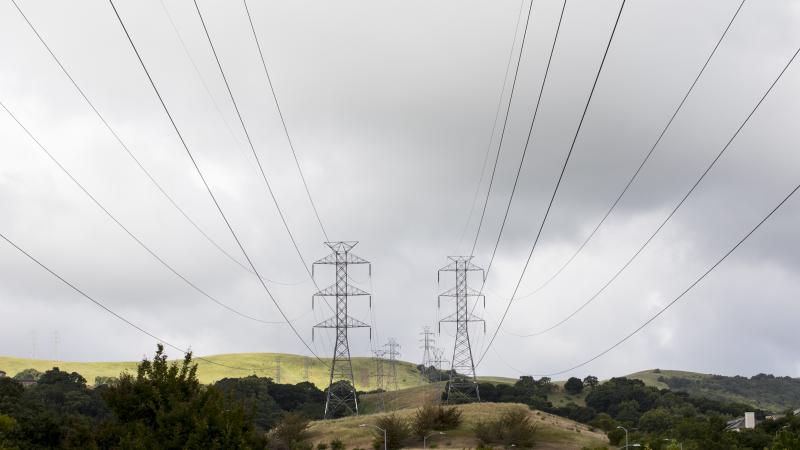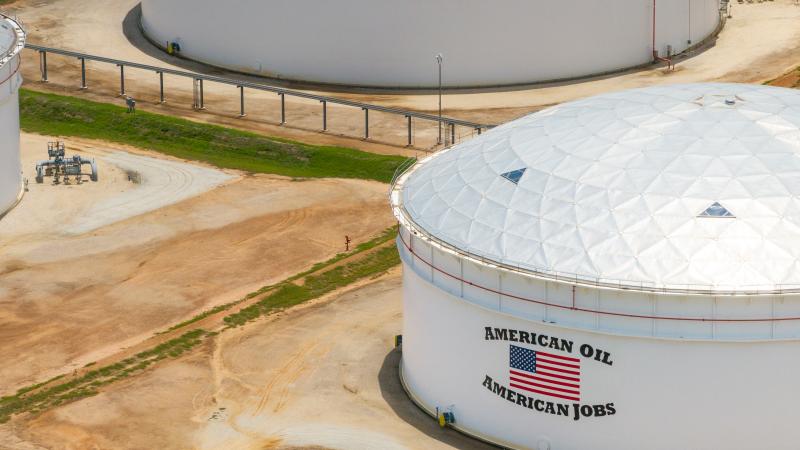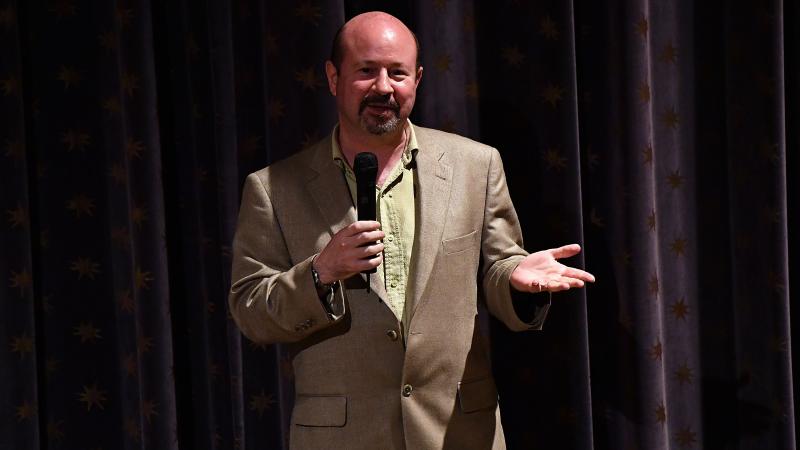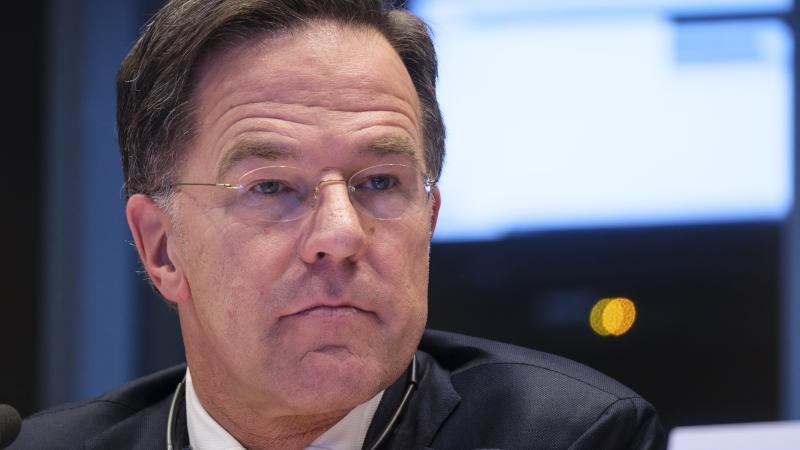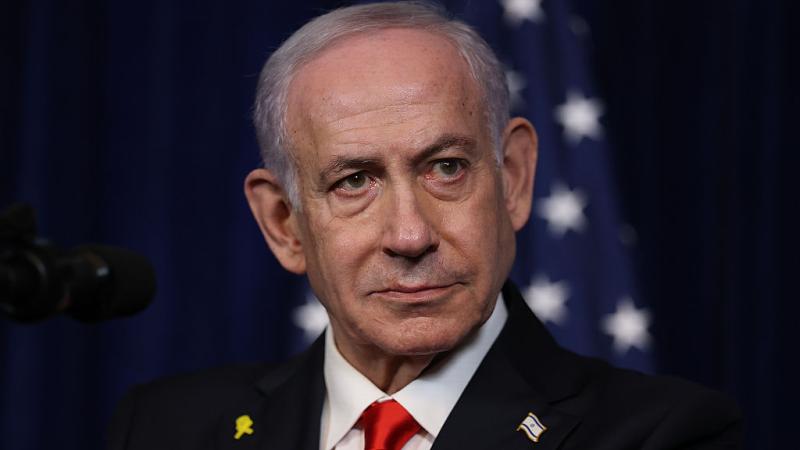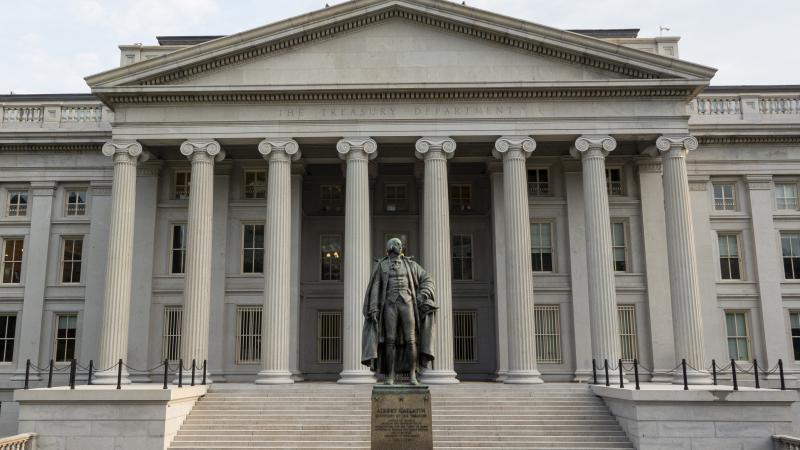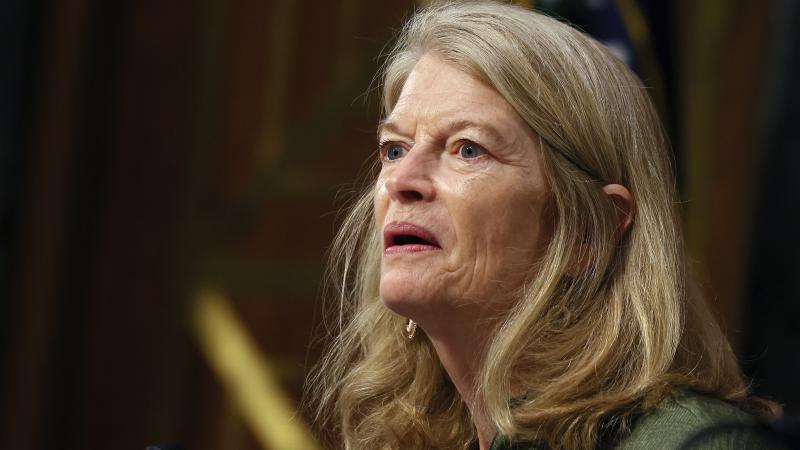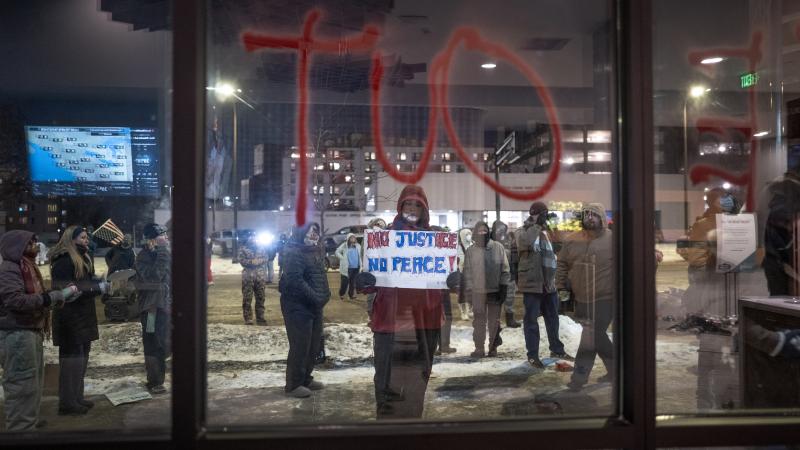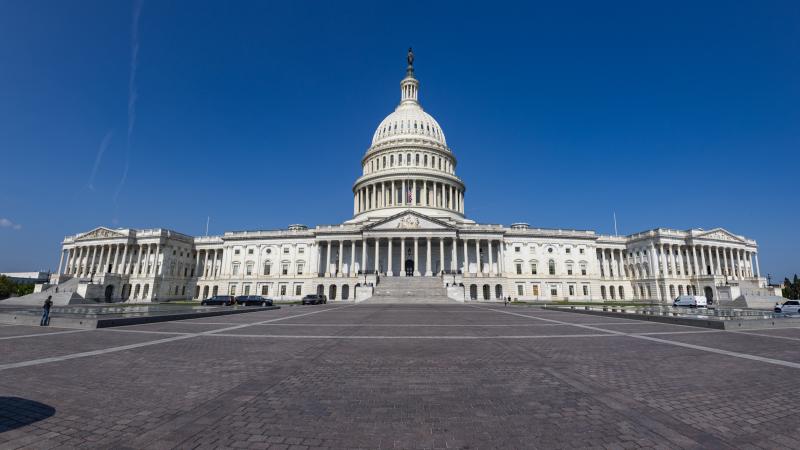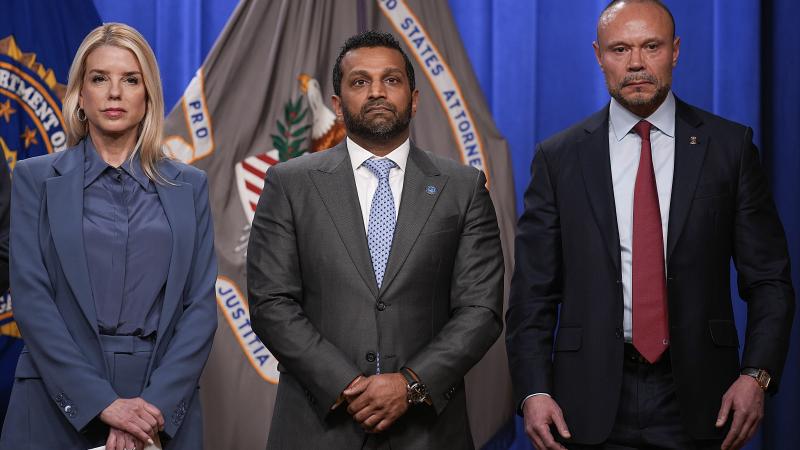DoE head nominee Wright underscores Trump's vision for American ‘energy dominance’
“Energy is the essential agent of change that enables everything that we do — everything. A low-energy society is poor. A highly energized society can bring health, wealth and opportunity for all,” Energy Secretary nominee Chris Wright said in his opening statement.
The confirmation hearing Wednesday for President-elect Donald Trump’s pick for energy secretary, Liberty Energy CEO Chris Wright, gave the oil executive an opportunity to clarify his views on energy and climate.
“Energy is the essential agent of change that enables everything that we do — everything. A low-energy society is poor. A highly energized society can bring health, wealth and opportunity for all,” Wright said in his opening statement.
Over two-and-a-half hours of questions, Wright testified on his vision, if he’s confirmed, for fossil fuels, nuclear, wind, solar and geothermal. He also discussed his position on carbon capture and other emission-reduction policies, nuclear waste disposal, and appliance efficiency standards.
Supporters of Trump’s “energy dominance” vision said that Wright navigated the questioning well and demonstrated a lot of potential for the position he was nominated for.
“Chris Wright's comments that energy security is the most important element, fundamental really, for human flourishing and survival were 100% correct. And it was great to hear that come out in a setting like this. I believe he handled most questions very well, and I trust that he will do a great job forwarding Trump's energy dominance agenda,” Linnea Lueken, research fellow with the Heartland Institute, told Just the News.
Daniel Turner, executive director for Power the Future, said in a statement that Wright displayed a “deep understanding” of energy issues.
“The American people overwhelmingly voted to put American energy first and Chris Wright is a leader who will deliver on that promise,” Turner said.
Scheduling
Some Democratic Senators took issue with the rushed scheduling of the hearing, which they said gave them little time to examine Wright’s background material concerning ethics and financial disclosures.
Nominees fill out paperwork detailing their professional experience and educational background. Federal officials look into candidates’ personal lives and criminal records, if any. The paperwork is used as part of the background check the F.B.I conducts, and lawmakers get access to these documents.
“I don't think it is too much to ask that members of this committee get 24 hours to review those documents. Mr. Wright, it's unfortunate that our first order of business involved breaking committee precedents. Nevertheless, because my concerns have gone unheeded, we will proceed today,” Sen. Martin Heinrich, D-N.M., said.
Sen. Mike Lee, R-Utah, chair of the Energy and Natural Resources Committee, said that the rules of the committee were followed in scheduling the hearing. Wright said he’d make himself available for any questions about his background.
Mainstream science
Ever since Trump announced Wright’s nomination, the legacy media have repeatedly portrayed him as a “climate denier,” largely because he disputes that climate change poses an immediate existential crisis. He also argues that rapidly eliminating fossil fuels to address the risk it does pose causes much more harm through energy poverty.
“Wright has been one of the industry's loudest voices against efforts to fight climate change and could give fossil fuels a boost,” CBS News reported in November. The same month, the New York Times equated Wright’s statements denying that climate change is a “crisis” as “disparaging climate science.” The Washington Post wrote that Wright “departs from the mainstream over the consequences, contending that there is no climate crisis.”
Despite the legacy media’s portrayals of Wright’s position as being against mainstream science, Dr. Roger Pielke Jr., retired professor of environmental studies at the University of Colorado at Boulder, explained on his “The Honest Broker” Substack that Wright’s understanding of climate science is in line with a United Nations consortium of the world’s leading climate scientists.
“The irony here is that Wright’s views on energy and climate, which he has expressed often and in detail, are largely consistent with the findings of the Intergovernmental Panel on Climate Change (IPCC). The views of his critics? Not so much,” Pielke wrote.
Climate hype?
There were multiple emotional outbursts from climate activists during Wright’s testimony, and the Capitol police removed several protestors disrupting the hearing.
Image

A protestor holds up a sign as President-elect Donald Trump's nominee for Secretary of Energy Chris Wright testifies during his Senate Energy and Natural Resources confirmation hearing on Capitol Hill on January 15, 2025, in Washington, D.C.
(Getty Images)
Sen. Alex Padilla, D-Calif., blamed climate change for the wildfires in Los Angeles that have destroyed homes, burned tens of thousands of acres, and claimed two dozen lives. Though how much climate change contributed to the disaster is far from certain. The California Democrat quoted Wright’s social media posts claiming that the narratives over wildfires are “hype.”
“It’s clear that these fires only reach the size and the scale that they have because of unseasonably dry vegetation and extremely high winds, both of which are a direct result of climate change….Given the devastation that we're currently experiencing in Los Angeles, do you still believe that wildfires are just hype?” Padilla said.
While Padilla repeatedly cut off Wright’s attempt to answer the question, Sen. John Barrasso, R-Wyo., used his time to give Wright an opportunity to respond to Padilla’s questions.
“We need to do everything we can to get those fires out, to get that infrastructure rebuilt, and to get people to return to the lives they had before it was visited on by these horrific fires,” Wright said.
Lueken, with the Heartland Institute, said Wright should have pushed back more on questions concerning the risks of climate change. He also voiced support for carbon-removal technologies, which critics say will drive up the cost of energy for little benefit.
“From a climate realist perspective, it was a bit disappointing to hear Mr. Wright insist multiple times during the hearing that climate change is a major threat that needs dealing with. This would have been a great opportunity for him to move the window, so to speak, for Republicans and give them permission to speak skeptically about climate change as a supposed existential threat, which it is not. My fear is that taking the stance he did take on things like carbon capture gives too much to the extremists on the climate left, even if oil companies tend to like carbon capture,” Lueken said.
All of the above
Wright was questioned about which energy technologies he would support if he is confirmed. Wright repeatedly affirmed his support for an “all of the above” approach, which includes support for renewables, nuclear and geothermal.
“I sit in front of you today…because President elect Trump shares a passion for energy and an instinctual understanding that energy is not a sector of the economy. It's the sector of the economy that enables everything else we do,” Wright said.
Wright also expressed support for oil and gas development. He said that when he was born 60 years ago, 80% of primary energy came from “hydrocarbons,” another term for fossil fuels.
“Today, total global primary energy is sort of low to mid 80% so global demand for energy has grown a lot. We brought a lot of new energy technologies along, thankfully, or we wouldn't have as much energy as we have today, but it's proven very hard to displace hydrocarbons in the global energy system,” Wright said.
Lee asked Wright about Wright energy efficiency standards for appliances. The Biden-Harris administration had passed a number of regulations regarding gas stoves, dishwashers, clothes washers and water heaters.
“The Biden administration has run somewhat roughshod over some of those consumer protections built into the law,” Lee said.
Wright said the federal government’s effort to force innovation has only produced appliances that may use half as much energy, but need twice as long to do the job, which has no benefit. He said, if confirmed, he’d take a close look at the tradeoffs that are being made with these standards.
“I think you should always be a little humble and a little cautious when you're proposing to reduce the choices of American consumers,” Wright said.
Destructive habits
Sen. Catherine Cortez Masto, D-Nev., asked Wright if he agreed that the proposed nuclear waste disposal site at Yucca Mountain is “unworkable.”
Wright said he supported a long-term disposal site somewhere, but he agreed that local communities living in the area should support the project.
Sen. Bill Cassidy, R-La., asked Wright if he’d support a fee on embedded emissions on imports. This would calculate how much emissions were used to manufacture imported products and then charge the source country a fee based on those emissions.
Wright said he would take a look at such programs. He pointed out that European countries have gone on a “destructive habit” of moving their energy-intensive industries out of the country. A lot of these emissions reductions that some countries tout, Wright said, are the result of deindustrialization.
“They've been more an emissions removal. If you shut down industry in your country or in your state, the emissions from that industry don't go away. They just go somewhere else,” Wright said.
Sen. John Hoven, R-N.D., asked Wright if he’d support development of carbon capture technologies to help address emissions. Wright said the answer to the senator’s question is a “resounding yes.”
Before Wright can be confirmed, the committee will vote on whether to recommend him to the full Senate. His confirmation will be debated on the Senate floor, and he’ll need a majority of senators to be confirmed.
The Facts Inside Our Reporter's Notebook
Videos
Links
- causes much more harm through energy poverty
- CBS News reported
- disparaging climate science
- The Honest Broker
- far from certain
- gas stoves
- dishwashers
- clothes washers
- water heaters
Other Media
Image

A protestor holds up a sign as President-elect Donald Trump's nominee for Secretary of Energy Chris Wright testifies during his Senate Energy and Natural Resources confirmation hearing on Capitol Hill on January 15, 2025, in Washington, D.C.
(Getty Images)
